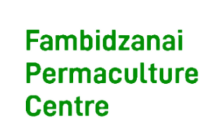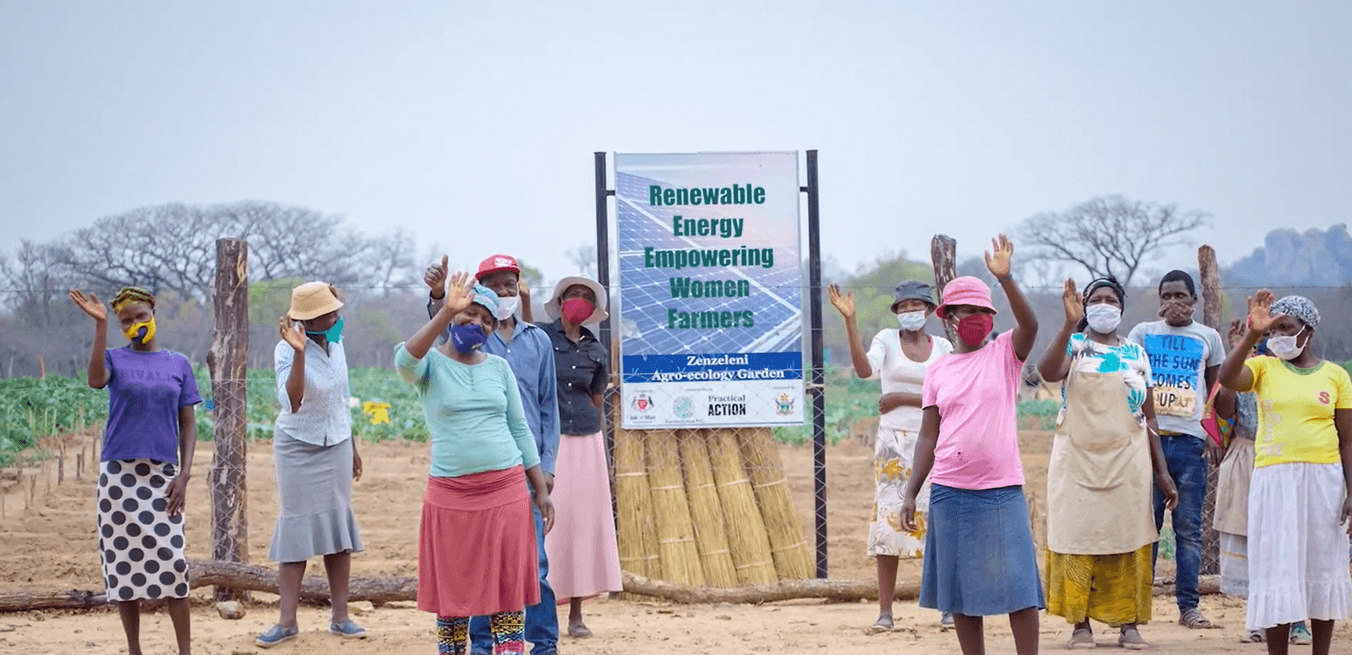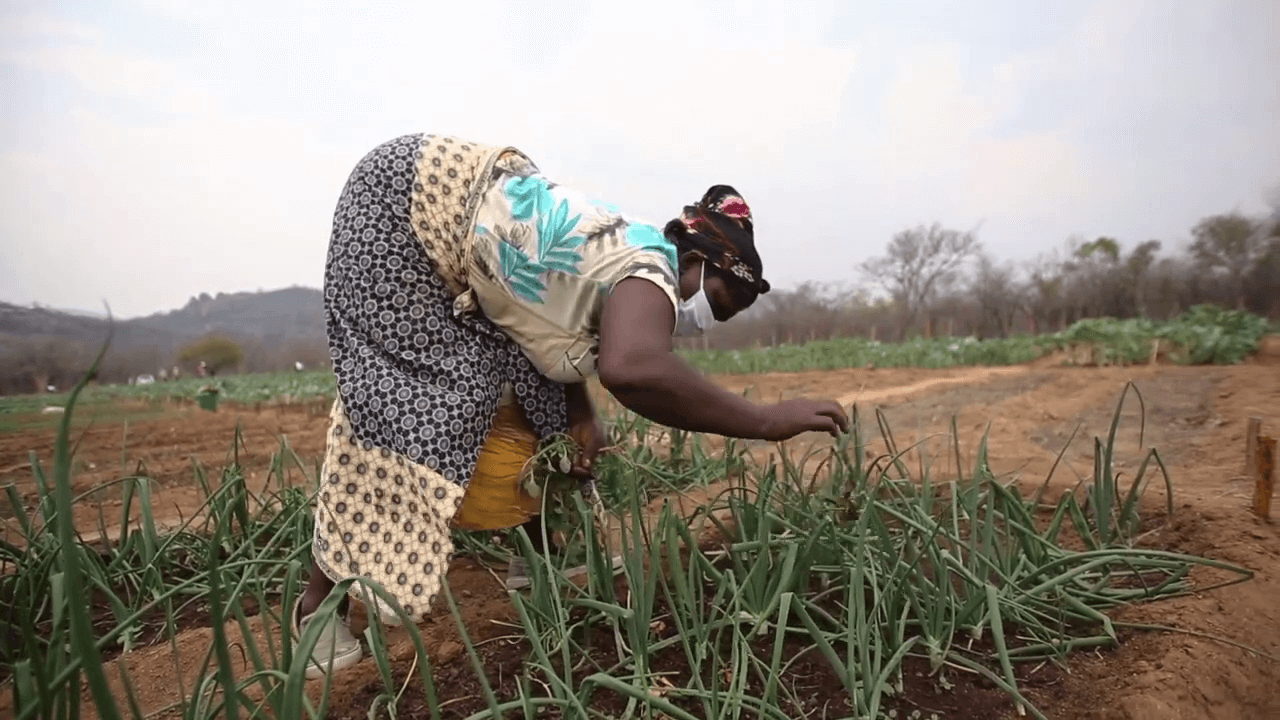Project Goal
Economic empowerment of women smallholder farmers in Zimbabwe through access to clean energy
Project Objective
Improved agricultural productivity and livelihoods through increased access to renewable energy, improved agroecological farming and increased access to finance and markets.
SUMMARY
The Renewable Energy Empowering Women Farmers (REEWF) project, in Zimbabwe, is being delivered under very challenging circumstances.
Zimbabwe was suffering from an economic crisis and nationwide there was a severe shortage of physical cash.
As of June 2019, the only legal tender in Zimbabwe was the “Zimbabwe Dollar”, the use of US Dollar for transactions had been banned.
The country suffered from acute fuel and electricity shortages, there were soaring fuel prices and extended periods without power affecting both project implementation and the daily lives of the staff and beneficiaries.
Zimbabwe also experienced severe climatic events during 2018/19.
The destruction caused by Cyclone Idai in March 2019 is still causing disruption to the country, as roads and communication networks are yet to be repaired.
Compounding the situation, Zimbabwe had been experiencing a severe and prolonged El Nino induced drought, which is causing nationwide food shortages, especially in the project’s focal areas, which are semi-arid regions.
Farmers experienced crop failures and livestock dying.
The REEWF project was delivered by Practical Action and Fambidzanai Permaculture Centre (a local partner)
It focused on two neighbouring districts in the Matabeleland South Province of Zimbabwe, Gwanda and Matobo.
Gwanda is the largest district in Matabeleland South Province (“Gwanda Rural”) and 42% of households are female headed.
It was one of the highest levels nationally, partly due to the cross-border migration of men seeking work in Botswana and South Africa.
In Gwanda, 47.6% of the population depend on agriculture for their livelihoods and in Matobo district, the statistics reflect a similar situation.
Practical Action are implementing activities in the district of Gwanda and FPC are responsible for implementing in the district of Matobo.
Very sadly, the project faced an additional set back when, Kuda Mudokwani, Programme Manager of FPC, unexpectedly died last year (2020).
Kuda was an important member of the project (as detailed in our application) and his passing has consequently resulted in a significant capacity gap in FPC and delays for some of the key activities in Matobo district.
We have worked intensively with FPC to strengthen their capacity. However, despite the issues, the project has made progress.
The project’s inception activities were delivered successfully in both districts. 74% of participants are female farmers, which is 4% above the project’s original target.
The communities, who we are working with, fully accepted the project’s aims and activities and understood the 10 % community contribution model (where communities pay 10% of the solar irrigation equipment costs in an initial down payment) with stakeholders saying the contribution adds to long-term sustainability and buy in from the farmers.
Many viewed the project as a ‘life source’’ for their communities.
18 solar-powered boreholes were installed on 18 nutrition gardens with nine apiece for both Matobo & Gwanda.
During Year 1, farming as a business training has helped subsistence farmers, who lack business skills such as financial literacy, record keeping and marketing.
Farming groups were supported to identify local value chains and potential products are leafy vegetables, tomatoes, onions, and small grains as well as indigenous chickens for the dryland farmers.
Ongoing capacity building throughout the year has empowered farmers to manage their farms more profitably and sustainably.
Building the capacity of the farming communities has been a key activity throughout the first year.
The project provided 18 lead farmers, from both districts, with training in podcasting and content recording.
This enabled them to share their farming knowledge and skills learnt from the project to other farmers, which is crucial to generating bigger and wider change.



